Klaus Schwab, founder and head of the World Economic Forum (who many joke resembles a villain from Hollywood central casting), may be facing a mutiny from within his own ranks in a plot worthy of its tinsel-town script.
It’s been 52 years since Schwab, at the ripe old age of 30, started the WEF under its former (and less ominous) name The European Management Forum. As far as his rank and file are concerned, there’s no succession plan.
The WEF is based in Switzerland with a mission statement that promises it is ‘committed to improving the state of the world by engaging business, political, academic, and other leaders of society to shape global, regional, and industry agendas’.
That’s the sort of bureaucratic waffle that sounds benign but seems to be masking something not so pleasant, like Monday’s curry sauce on Sunday’s left-over seafood.
The WEF’s annual highlight happens every mid-to-late January in the ski resort town of Davos nestled in the Swiss Alps. You’ll typically find around 3,000 business titans, international political leaders, celebrities, and economists – the people the elites consider to be elite – meeting for a conference with over 500 sessions on the trendiest issues and problems of the day.
On the face of it, there’s nothing wrong with this. It’s good that the power-people get together and talk. It gets them collaborating on the important stuff, which is better than having them fighting or using the rest of us as cannon fodder. And as far as exerting soft-power on a global level goes, you’ve got to hand it to the 30-year-old Catholic German-born Swiss kid who came up with the idea for the WEF.
Funded by its corporate members and with an annual budget of around US$390 million (A$590m) the WEF also runs a half dozen or so regional meetings around the world each year. For his troubles, Schwab is reported to pocket an annual salary somewhere in the millions.
But everything started to go south for the organisation around mid-2020 when it launched what must be the most insensitively and badly-branded initiative by a big globalist organisation in the history of big globalist organisations naming big initiatives.
The forum leaders wanted to seize the moment and use the Covid pandemic as a catalyst to begin a globally-aligned re-think of, well, everything.
This is just the sort of thing you want to do when a dangerous respiratory virus (that probably leaked from a gain-of-function research lab in the middle of China), is spinning around the world and causing most countries to rapidly leap into never-before-seen authoritarian lockdowns.
‘Hey guys!’ I imagine the PR guru at the launch meeting eagerly suggesting, ‘I’ve got a great name for this thing! Let’s call it the Great Reset!’
Cool. That should calm the conspiracy theorists down and alleviate any suspicions of international skullduggery being behind the virus in order to trigger a global takeover by a coordinated cabal seeking world domination. You’ve got the James Bond villain and the 007 luxury resort town setting already in the bag. Give that PR guy whatever the PR equivalent of an Oscar is, immediately!
The Great Depression, The Great Recession, The Great Leap Forward … what could possibly go wrong with a global initiative driven by a forum of global elites, most of them not democratically elected to lead anything, called The Great Reset?
Tone. Deaf.
And pretty dumb, too. The WEF might have finally pushed its long-term critics a step too far.
The Dutch-based think-tank, the Transnational Institute, published a paper in 2016 entitled Davos and its Danger to Democracy likening the annual gathering as ‘a silent global coup d’état to capture governance’. Now, other media organisations are starting to admit that maybe something shifty is going on behind all those closed doors.
What was most noteworthy about last week’s 2023 WEF Davos meeting was not who attended, but who didn’t. Nine of the world’s 10 richest people gave the gab-fest a wide berth this year. Elon Musk was one of those who happily declined, using the occasion to pour scorn on the forum’s passion for so-called ‘ESG’ (Environment, Social and Governance) investing and ‘stakeholder capitalism’.
‘The S in ESG stands for Satanic,’ Musk tweeted, in his usual trolling style.
Only one leader of a G8 nation attended, German Chancellor Olaf Scholz, and only two leaders from the entire Asia-Pacific region – Philippines President Marcos and South Korean President Yoon.
It’s likely that the decline of the WEF’s status and influence are the result of criticism that it’s out-of-touch and arrogant. Not an uncommon complaint to be levelled against an organisation run from the top by a long-time founder or family.
Now, The Guardian newspaper reports that a group of current and former WEF staff have written to it complaining that ‘the 82-year-old Schwab was a law unto himself and had surrounded himself with ‘nobodies’ who were incapable of running the organisation.’
The group reportedly told the prominent left-wing newspaper that Schwab is completely unaccountable to anyone inside and outside the organisation and that they needed to remain anonymous because, ‘Klaus is very well connected and can make life very difficult for us even after we leave the WEF.’
‘In most organisations the next generation of top leadership is faintly visible at the higher levels of management, but at the WEF Klaus has surrounded himself with such a group of nobodies at the top that it’s hard to see how any of them could be taken seriously.’
The Guardian failed to mention that back in 2003, Schwab appointed José María Figueres as CEO of the WEF, anointing him as his intended successor. But a scandal a year later involving $1.4m of undisclosed consultancy fees paid to Figueres by French telco Alcatel, forced him to resign.
Former UK prime minister Tony Blair has always been closely involved in the WEF’s activities and is one figure rumoured to be a possible successor, although there is no confirmation from the shadows yet.
No matter who takes over, the WEF will need to re-imagine itself. A massive dose of humility, topped with a shot of transparency are in order. The forum is doomed if it continues to exert power and drive initiatives and agendas without careful consideration and consultation.
Even its Young Global Leaders program – in which a couple of hundred influential rising stars of business and government under 40, connect for six-year terms and meet for occasional academic-style conferences with high-profile politicians and CEOs – has become a focus for critics.
Conspiracy theorists may almost be within the bounds of reasonableness when they question why so many former YGLs inhabit the senior ranks of government: Vladimir Putin, Jacinda Ardern, Justin Trudeau, and Australian Senator Sarah Hanson-Young (Greens), Senator Andrew Bragg (Liberal), and Home Affairs and Cyber-security Minister Clare O’Neil (ALP).
‘The Forum of Young Global Leaders accelerates the impact of a diverse community of responsible leaders across borders and sectors to shape a more inclusive and sustainable future,’ the YGL website boasts.
More waffle.
The economics education organisation Economics Explained, which has more than 2 million followers on its YouTube channel, suggests this verbal sludge is far from politically neutral.
‘You have to realise how blatantly partisan [The WEF] is … it blatantly pushes globalist ideas and advocates for nations to openly share their intellectual property. The WEF sounds like it should be a forum that should position itself above agendas like this,’ it says, in its video explainer on the Great Reset.
‘It’s a book club for Woke billionaires.’
And therein lies the WEF’s biggest problem. It’s a forum with a specific opinion and worldview, one in which corporations and business focus on social and environmental initiatives by practising ‘stakeholder capitalism’ aiming not just for profit for shareholders, but for high ESG and Diversity, Equity, and Inclusion (DEI) scores too.
It’s a ‘Woke’ worldview – steeped in post-modernism, neo-marxism, identity politics, and elitism. And it is anathema to classical liberalism’s laissez-faire approach to regulation and business, in which business takes care of customers and shareholders by competing to deliver maximum value with maximum efficiency, while government applies light regulation for social benefit based on the will of the people who democratically elect it.
Given how far down the ESG and DEI rabbit-hole modern corporations have descended – and the nascent backlash that will likely build in coming years against this imposition of Woke culture on all of us – it may very well indeed be time for a Great Reset of the role of corporations in society. Just not the kind Klaus and Co. intended.
Got something to add? Join the discussion and comment below.
Get 10 issues for just $10
Subscribe to The Spectator Australia today for the next 10 magazine issues, plus full online access, for just $10.

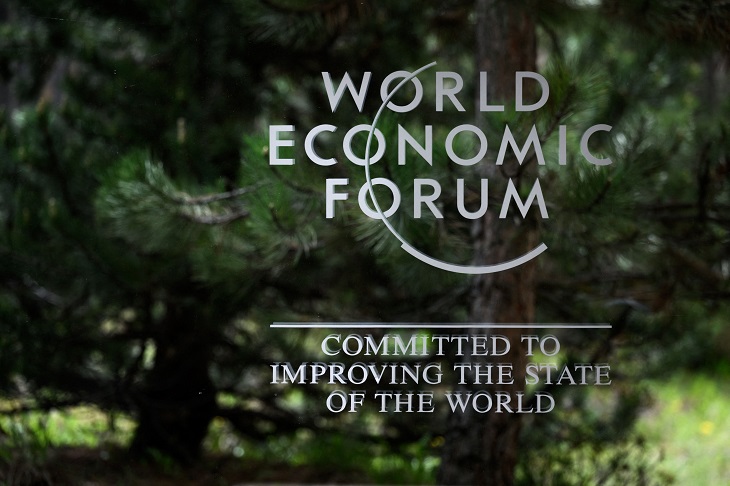
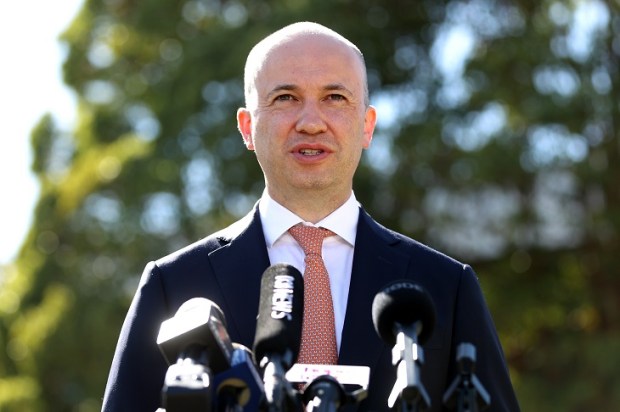
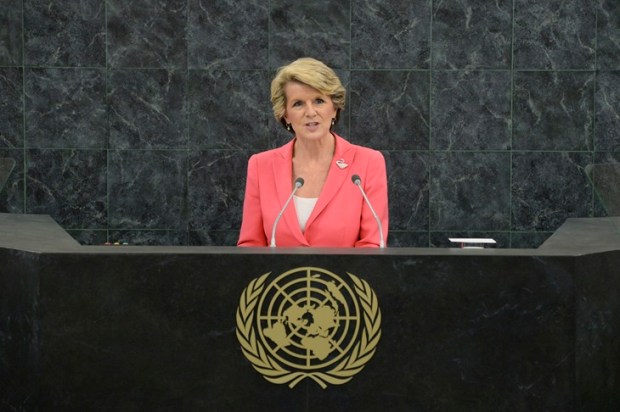
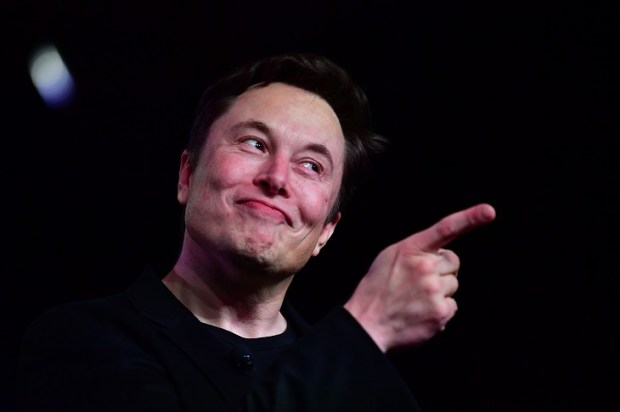
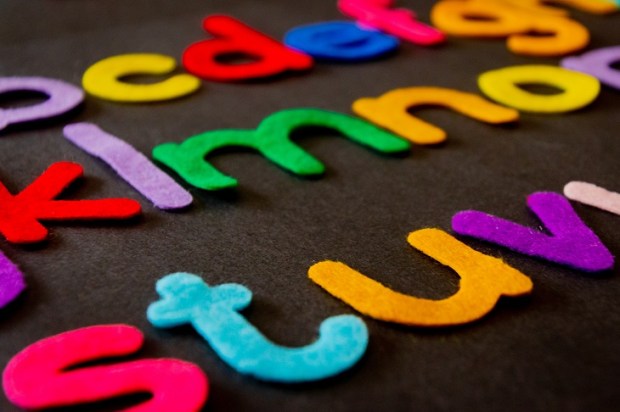
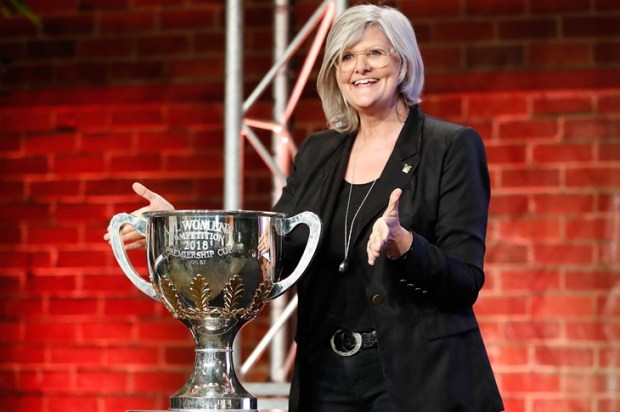



















Comments
Don't miss out
Join the conversation with other Spectator Australia readers. Subscribe to leave a comment.
SUBSCRIBEAlready a subscriber? Log in